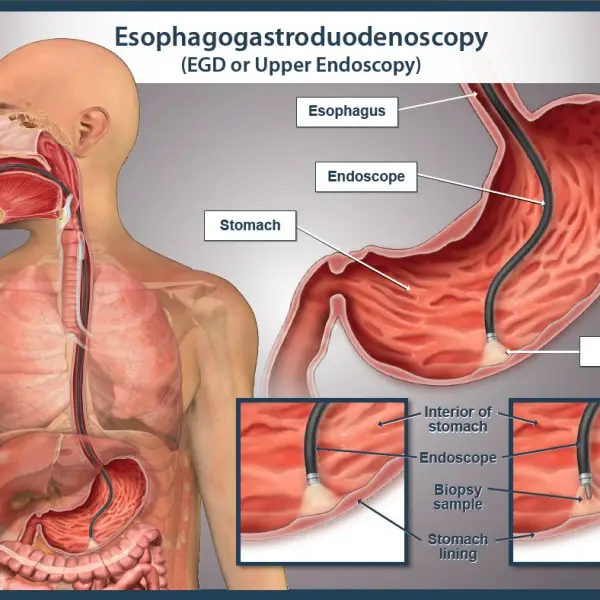Esophagogastroduodenoscopy (EGD)
What is it and why do I need it?

Important!
Medications: If you take insulin or other diabetic medicines, dosage adjustments will be provided for you. Bring your insulin with you so that you can take it after the procedure if necessary. If you are on blood thinners, let us know at the time of scheduling because they may need to be held. All other meds should be taken at their usual time with a few sips of water.
You will be asked to sign a consent form at the time of the exam. The risks of EGD are low (under 1%) but do include bleeding, perforation, infection, tearing of the lining, aspiration, medication reactions, and heart/lung problems.
Your procedure usually takes 5-10 minutes and you will be sedated for it. Once you are asleep, the endoscope will be inserted through your mouth and advanced into your esophagus, stomach and duodenum. Your physician will then withdraw the endoscope and look for any abnormalities that need to be biopsied or treated.
In the recovery unit, your physician will discuss the results with you and give you discharge instructions. You will remain there until your sedation has worn off to a satisfactory level. After discharge, you may resume your usual activities and diet and return to work the following day. However, you may not drive, make important decisions or operate machinery the rest of the day. You must have someone at least 18 yrs old with you during the entire time from check-in through recovery and to drive you home after the exam (a taxi or bus is not an option). If any biopsies are taken, you will be asked to follow up with the results in the OPD after 5-7 days.


